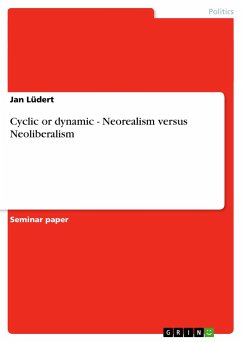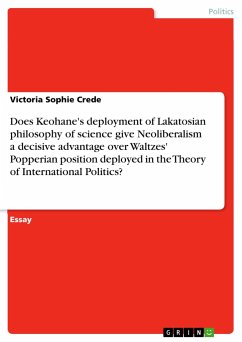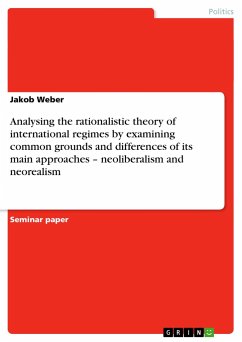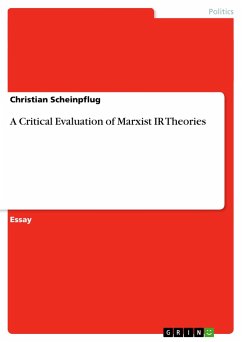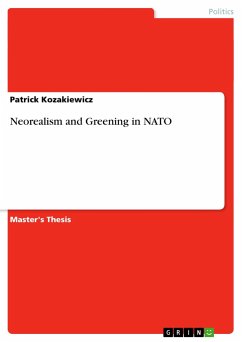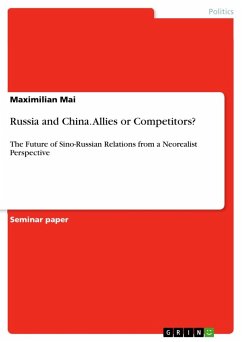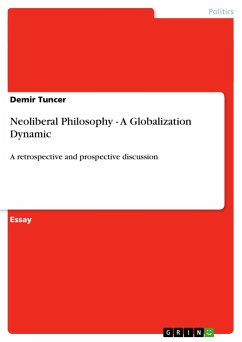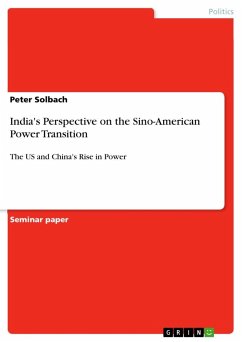Seminar paper from the year 2006 in the subject Politics - International Politics - General and Theories, grade: 1.6, The Australian National University, language: English, abstract: Contemporary theory of International Relations is a continuous scholarly battleground for variousschools of thought. This paper will scrutinize two prevailing theories of neorealism andneoliberalism, namely Kenneth Waltz's concept of political structures juxtaposed with Robert O.Keohane's neoliberal institutionalism. To arrive at a critical conclusion that explains which of thetwo constructs stand a better chance of successfully explaining the most fundamental workings ofthe international system of states, a four-part sequence is proposed in this paper. Firstly, this paperwill explain how both authors define their assumed principles and how those assumptions aresummarised in relation to the international system. Secondly it will demonstrate where the author'sideas intersect and/or divert from the other. Thirdly, it will examine if it is feasible to classify theideas as distinct theories or if it is perhaps more accurate to see Keohane's work as an alteration toneorealist theory. Finally, by equating the logical consequences of the findings in the precedingsections, this paper will conclude with a restrictive formulation of the more convincing idea withinthe confines of the two texts.Waltz commences his 1979 chapter on political structures in "Theory of International Politics" bystressing the need for a system theory of international politics, which is set apart from economic,social and other international realms. He adapts the idea of structure predominately used byeconomists and anthropologists. Waltz is particularly interested in the creation and interaction ofthe units within the system and amongst each other, as well as the forces and outcomes that theunits entail. By setting aside "the characteristics of units, their behaviour, and their interactions"and focusing purely on their position within the structure instead, Waltz argues that an abstract theory of the system will more precisely explain how the structure of political systems affects theagencies, its units, thereby minimising confusion between system and unit level causalities.As Waltz continues his deductive approach to political systems he constitutes structure andinteracting units.
Hinweis: Dieser Artikel kann nur an eine deutsche Lieferadresse ausgeliefert werden.
Hinweis: Dieser Artikel kann nur an eine deutsche Lieferadresse ausgeliefert werden.

